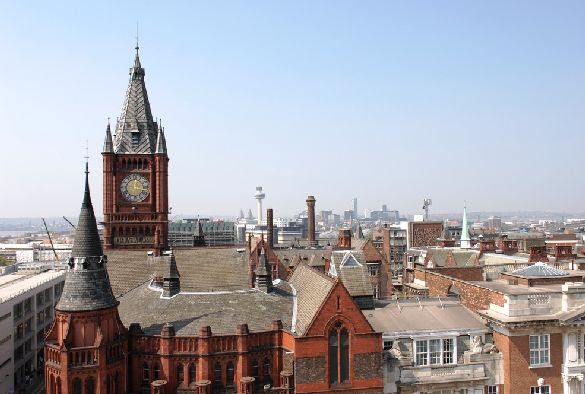
In response to the recent fire at a student accommodation block in Bolton, a review has been undertaken of fire safety across the academic and residential estate. This has found that all buildings are low risk.
In addition, the University is currently working with Liverpool Student Homes on a review of privately-owned halls of residence recommended by Liverpool’s universities and the outcome of this work will be shared as soon as possible. Work is also underway with the local authority on wider fire safety across the City.
This builds on the extensive review of all academic and residential buildings over 18 metres tall in 2017 following the tragic Grenfell Tower fire and a similar piece of work with Liverpool Student Homes.
Continual review
The University’s Interim Director of Facilities, Residential and Commercial Services, Phil Marsh, said, “The safety of our students and staff is of utmost importance and we continually review the fire safety of our buildings to ensure a secure environment for all.
“Minimising the risk of fire is everyone’s responsibility and I’d urge students to follow advice to reduce fire risks and ensure they are familiar with their local fire evacuation plans.”
Fire safety advice
Most fires in the home can be prevented by taking some simple safety precautions.
There is a lot of advice about fire safety in the home available on the Fire Service webpages, but here are some top tips to get you started.
- If you are living in halls of residence and you hear a fire alarm in your area (it may be your floor, or your specific block), don’t assume it is a drill. Make sure you immediately follow local evacuation protocols.
- If you are in rented accommodation, your landlord must ensure your home has at least one smoke alarm on every floor level of your property. Make sure you can hear the alarms throughout your home. As a tenant, it is your responsibility to test your smoke alarms. Test your alarms weekly – they could save your life, but only if they are working.
- Wherever you are living, check your building plan and practise how you’d escape in a fire. Make sure you have a plan B.
- Most accidental fires start in the kitchen, so take care and never leave cooking unattended.
- Don’t overload plug sockets and adapters – watch out for loose wiring, scorch marks, and hot plugs and sockets. Don’t leave electrical items like mobile phones, laptops or e-cigs charging overnight or unattended.
- Keep heaters clear from curtains and furniture and never use them to dry clothes. Remember not to place hot items like straighteners or hair dryers on surfaces which might catch fire like bedding or carpets.
- Stay safe with candles and cigarettes. Stub cigarettes out properly and dispose of them carefully. Always check if you are allowed them in your accommodation.
- Don’t prop or wedge a fire door open… a closed one could save your life.
For more fire safety information, you can visit the Fire Kills webpages. You might also find the information on Fire Safety in Shared or Rented Accommodation helpful.